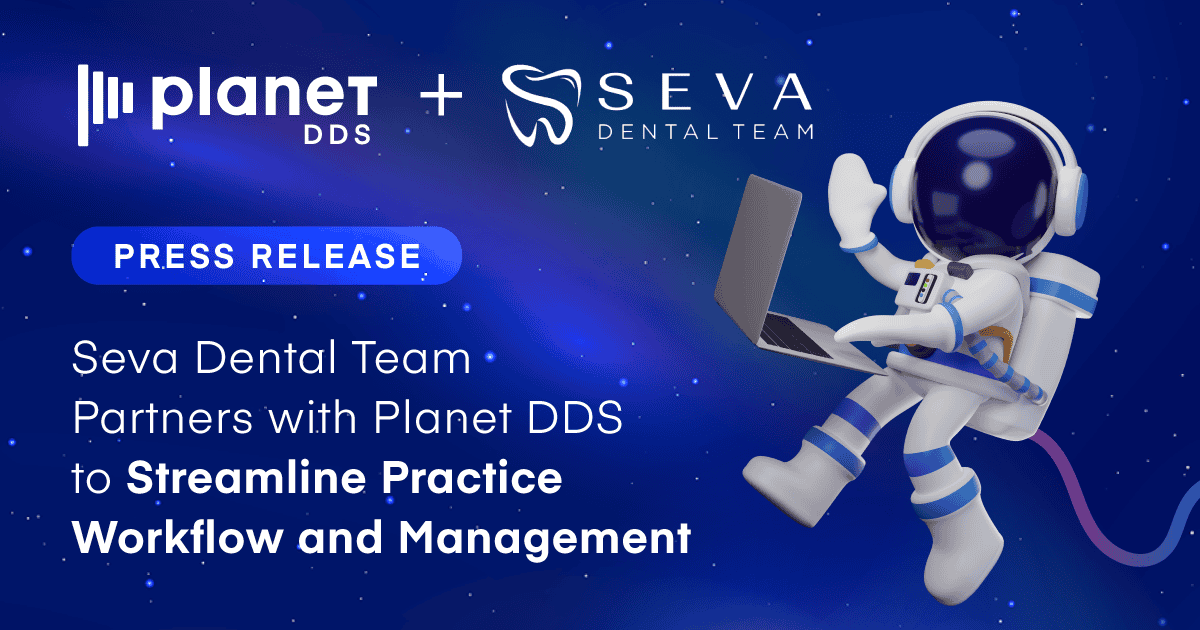How Many Years Does it Take to Be an Orthodontist? A Complete Guide
This Cloud 9 guide answers, "How long does it take to become an orthodontist?" & how your practice can support students in orthodontic programs. ✓ Learn more!

General oral health dentists are the foundation of your dental business. Helping your patients deal with one oral problem or another will be the bulk of your operation. Still, hiring specialists is crucial to expanding your practice and generating new revenue streams.
The orthodontic field alone was worth $3.23 million in the U.S., demonstrating exceptional demand for these services. Hiring one can significantly benefit your practice.
Understanding the ins and outs of each specialty helps you make better business decisions. For those who want to become orthodontists, how many years does it take to complete the required education?
This article covers everything you need to know about schooling for an orthodontist, the number of years it takes to become one, and how you can support students to get into the business.
How Long Does it Take to Become an Orthodontist?
Young dentists who want to become orthodontists must have graduated from dental school, completed an orthodontics program, and finished a two to three-year residency.
The number of orthodontist schooling years is significant, even for an existing dentist wanting to transition into the specialty.
So, how long does it take to become an orthodontist? This section covers everything a student needs to go through to become a fully-fledged orthodontist.
Total Orthodontist Schooling Time
Suppose you are supporting an orthodontist-in-training to grow your practice, or you’re looking to help one of your general oral health personnel to transition into the specialty. In that case, you need to know how to become an orthodontist and how long it takes for students to complete schooling.
So, how many years does it take to be an orthodontist in total?
Most orthodontists spend ten years from start to finish. Firstly, they must complete a four-year undergraduate degree before attending dental school for another four years.
Additionally, orthodontists must complete a two to three-year residency program.
Education Requirements
Orthodontists don’t need to complete a specific major while in school. However, scientific majors come in handy because dentistry is a career rooted in science.
Getting into dental school is highly competitive, meaning applicants must have stellar grades before applying. They must also score highly on the Dental Acceptance Test (DAT) to increase their chances of standing out.
If accepted, students will begin their four-year programs immediately. Through classes and hands-on experience, dental students learn everything they need to know about the dentistry field.
Orthodontist schooling time lasts for a minimum of two years, but some residency programs can last up to three. These programs focus on acquiring the practical experience orthodontists need to master their chosen specialty.
Dental practice managers can assist students by offering apprenticeships and residencies to orthodontists looking to get the clinical care experience they need. Supporting the younger generation enables your practice to get the first pick of the brightest talents.
Certifications
All orthodontists must be certified by the American Board of Orthodontics. Receiving this certification means completing a selection of written and practical tests. This certification allows an orthodontist to call themselves a Board Certified Orthodontist.
When hiring an orthodontist, you’ll need to check that any applicant possesses this certification to work for your practice legally.
Licensing
Every state requires orthodontists to be licensed. All orthodontists have one to practice as a dentist and a separate orthodontist license.
All states require applicants to pass an exam, but exact requirements vary by state. You’ll need to check your state’s requirements to ensure you know the licensing laws before hiring an orthodontist for your practice.
How Your Practice Can Help Students in the Orthodontics Program
Your practice can support the next generation of orthodontists. Now that you know the answer to “How long does it take to become an orthodontist?” you’re in a better position to support students in completing their education.
Remember, working with younger dentists enables you to hire some of the best talents and gain the value of a skilled professional on your team. Here’s how practice managers can help this process.
Offer an Apprenticeship
Apprenticeships are perfect for new dental school graduates and orthodontists completing their residencies.
An apprenticeship program offers the chance to shadow an experienced professional and assist them in their roles. Bringing an orthodontics student into your practice also gives them real-world experience in how a working dental clinic operates.
Assistant Positions
Orthodontists that have already graduated still need to find a job. Unfortunately, a lack of experience can stop them from getting their desired position.
Many orthodontists rely on starting in an assistant role to garner that invaluable experience. Offering an assistant position helps you fill your team at a lower salary because you’re providing them with expertise to help them become well-rounded professionals.
Office Internships
An internship allows orthodontics students to get a taste of what it’s like to work as an orthodontist within your practice. Approximately 70% of interns are hired by the same company they completed their internship with.
Gaining work experience and fulfilling the requirements of their orthodontics program through your company can open up a pool of talent for future hires.
The Benefits of Supporting Young Orthodontists
Growing practices commonly believe they lack time to offer internships and assistant positions. Still, there is a range of advantages to be had for practice managers.
If you’re wondering whether supporting young orthodontists is worth your time, here are some benefits for your practice.
Reducing Your Employees’ Workload
Smaller practices often require employees to wear many hats to keep up with the workload. Hiring an intern or bringing in an apprentice during a busy period can alleviate some burdens.
Allowing young orthodontists to take on light duties can make a massive difference to your team and enable them to spend more time on essential tasks.
Train New Full-Time Employees
Opening up an internship or apprenticeship position is a golden opportunity to train a potential full-time employee. You’re not just showing someone how to practice as an orthodontist. You’re showing them how your business operates.
With the high intern hiring rate, there’s a good chance that your efforts will result in a new hire.
As a bonus, hiring an intern or apprentice orthodontist streamlines the onboarding process because they already know how your business operates.
Promote Your Business
Hiring local students is an excellent opportunity to market and grow your practice. This is a great reflection on your practice as clients love businesses that support those in their communities.
Do your job well as an employer, and anyone you hire in any position is likely to tell others about their positive experience.
It can attract other recruits, improve your business’s public-facing reputation, and eventually boost your bottom line.
Train the Next Generation of Orthodontists with Cloud 9
As a dental professional, you know that there are important steps for how to start a dental practice and keep it running efficiently. Understanding how many years it takes to become an orthodontist aids in this process and is your chance to take an active role in training the next generation of orthodontists. With real business benefits, even smaller dental practices stand to gain from supporting them.
Managing interns, apprentices, and dental personnel making the transition will impact your management processes significantly. Cloud 9’s cloud-based specialty dental practice management software is designed for busy practices that want to minimize workflow, improve staff efficiency, and boost productivity.
Providing a five-star patient experience starts at the top. Learn more about how Cloud 9 can help your practice grow by requesting a free demo today.



